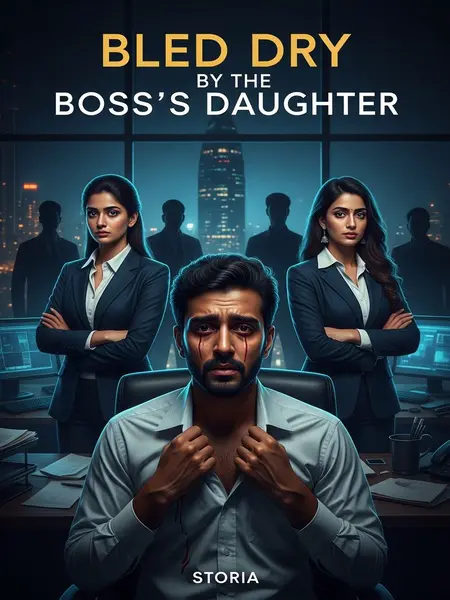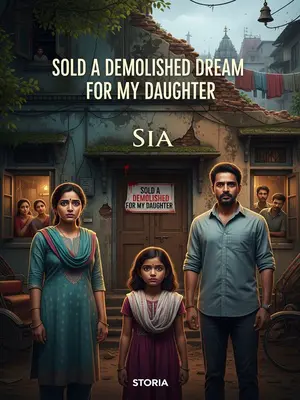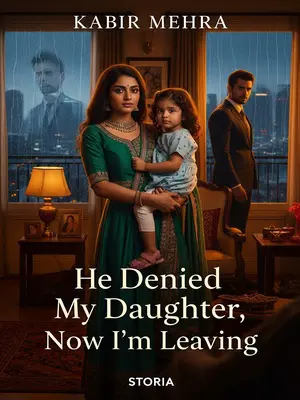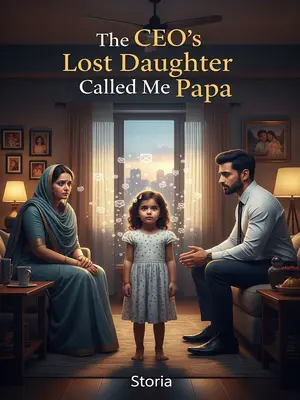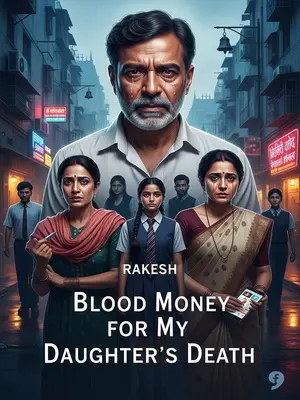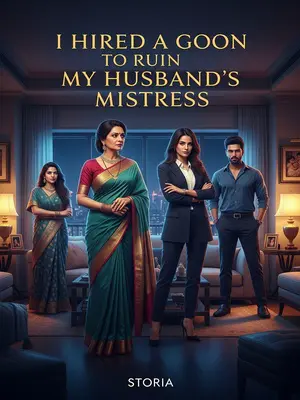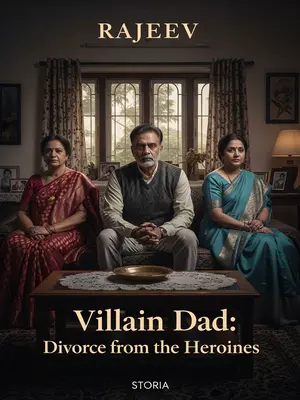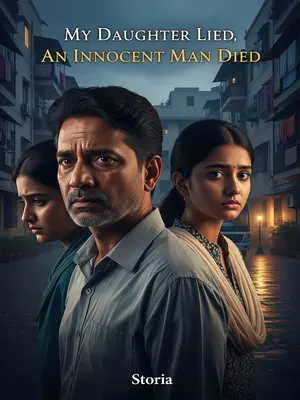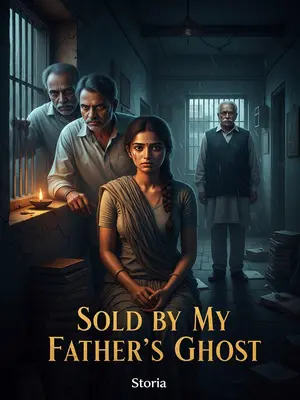Chapter 3: The Meeting Room Showdown
The supervisor coughed. “Sir, while we’re meeting, I want to suggest upgrading our machines. Otherwise, there could be more accidents.”
He looked nervous, his voice barely rising above a whisper. His hands twisted the hem of his shirt. Everyone was watching, waiting for the boss’s reaction.
Everyone nodded. After all, a worker had died. How could we not upgrade?
Even the silent ones, who never opened their mouths, were quietly in agreement. Fear brings people together, at least for a moment.
The boss asked, “How much to upgrade?”
His eyes narrowed. He always wanted numbers before emotions—profits before people.
The supervisor said, “A full new assembly line, about 20 crore rupees. We can get a bank loan.”
He looked down, as if bracing for a scolding. Everyone shifted in their seats, the tension thick as dahi.
The boss nodded. “I looked into it. The chance of an accident with old equipment is about one in ten thousand. Last time, a worker died and we paid 2 crore in compensation. So 20 crore would cover ten accidents.”
He grinned, like a baniya counting coins at Diwali, not dead bodies. He winked at his daughter, and joked, “If we really get to ten accidents, the company would’ve gone public by then. I’ll buy my little princess a diamond-studded Bentley.”
His voice was so full of pride, you’d think he was giving a TED Talk, not discussing dead workers. Priya’s eyes sparkled at the mention of the car, her smile wicked.
The little princess giggled. “Papa really knows how to do the maths.”
She clapped her hands, as if her father had just performed a magic trick. The others looked down, uncomfortable.
I watched the father-daughter banter, feeling a chill deep in my bones.
There was something obscene about their laughter. I felt my stomach twist, a cold fury settling inside me.
The worker’s mother had lost her son, lying in the hospital, waiting for compensation to save her life. But these people laughed like it was a joke, mouths stretched wide with glee.
I thought of the old woman’s trembling hands, her hopeful eyes. At that moment, I knew there could be no forgiveness.
The boss’s wife said, “No more talk of upgrading. The company can afford the compensation. We have over 10 crore in liquid funds.”
She said it like she was talking about pocket money, her tone casual, dismissive. Her diamond ring flashed as she adjusted her pallu.
I sneered inwardly.
Let her enjoy her delusions. She had no idea the house of cards was already tumbling down.
No, you don’t have a single rupee left.
If only I could have shown her the empty company account, her face would have been worth a thousand words.
The little princess thought for a moment. “But the workers are in a bad mood. I hope all the uncles and aunties here can go down to the workshop and comfort them. It’d be best if you operated the machines yourselves, to show the workers our equipment is safe and boost morale.”
She smiled sweetly, but there was malice in her words, as if she wanted to see us suffer for her entertainment. Some of the older workers flinched, understanding what she really meant.
The boss beamed at his daughter. “My girl really is management material.”
He looked so proud, as if his daughter had just topped the IIT entrance. The room filled with forced laughter.
Everyone fell silent.
No one wanted to risk their job by speaking out. In India, silence is often the only way to survive.
The boss continued, “One more thing. My daughter needs an internship for school. See if there’s a less busy position for her.”
His tone was soft, but his eyes were sharp. It wasn’t a request, it was an order. The HR lady scribbled a note, her hand shaking.
I said casually, “Why not let the little princess manage the workshop? If the boss’s daughter personally operates the machines, the workers will feel reassured.”
I said it with a smile, but my words were laced with acid. The others stared at me, mouths open. The office peon nearly dropped his tray of chai glasses.
The room went dead silent. You could hear a pin drop.
Even the buzzing of the tube light seemed to stop. Time stood still for a moment.
Everyone stared at me, stunned. The boss’s jaw dropped. He hadn’t expected that.
His face turned red, veins bulging on his forehead. For a second, I thought he might actually hit me.
He grabbed a water bottle and hurled it at me. “If you can’t speak properly, then shut up! How could my daughter go to the workshop?”
The bottle crashed against the wall, water spraying everywhere. Someone gasped. I didn’t flinch.
The little princess scowled. “What if I die?”
Her lower lip trembled, but her eyes were cold, calculating. She clutched her expensive bag as if it was a shield.
I shot back, “When you asked us to go to the workshop, did you ever think about us?”
I could feel everyone’s eyes on me, some with fear, others with grudging respect.
She bristled. “How can I be the same as you?”
The arrogance dripped from every syllable. Her mother patted her shoulder, as if comforting a petulant child.
“How are you different?”
The little princess, still young and arrogant, said, “People’s lives aren’t equal, don’t you get it?”
Her voice rang out in the silent room, the words slicing through the tension. A few people winced. The office boy looked down, shuffling his feet.
Everyone’s faces darkened.
The truth, ugly as it was, had been spoken. Even those who agreed with her kept quiet, afraid of what might come next.
Even the boss tried to smooth things over. “There’s not much difference. We’re all one family here. My kid is young, just talking nonsense—don’t take it seriously.”
He gave a nervous chuckle, but no one joined in. The words felt hollow, as empty as the promises he’d made about salary hikes.
I said blandly, “Let’s vote. I propose the boss’s daughter go to the workshop to encourage the workers. It was her idea in the first place.”
I raised my hand, looking each colleague in the eye. None dared to move.
The boss’s wife slammed the table, furious, and cursed, “Nonsense! If you lose an arm or a leg, our family can afford it! But if anything happens to my daughter, which of you can take responsibility?”
Her bangles clanged together as she pounded the table. Her voice was shrill, almost hysterical. For the first time, she looked afraid.
I glanced at her.
I could see the cracks appearing in her mask. She was still pretending, but the fear was real now.
She didn’t know that before this meeting was over, debt collectors would come and make her whole family lose arms and legs.
The irony tasted sweet. What goes around, comes around—my mother used to say that when the local moneylender came knocking.
In the meeting room, my colleagues didn’t even dare to breathe.
One of them fiddled with a pen, another bit his lip until it bled. No one wanted to be the next target.
They probably thought I’d lost my mind.
I could see it in their eyes—the mixture of fear, pity, and silent admiration. Maybe they would remember this moment when they told their wives about the crazy accountant.
The boss’s face was thunderous. He thought I was acting out over unpaid wages, and said coldly, “If you’re going to bring your emotions into this, then get out.”
He pointed at the door, his hand shaking. But his eyes betrayed his own fear—he wasn’t used to being challenged like this.
I sighed. “This isn’t about emotions. It’s about being human.”
The words felt heavy in my mouth, but true. For a moment, I saw a flicker of shame in the boss’s eyes.
I stood and walked over to the little princess.
My steps were slow, deliberate. The room was so silent, I could hear my own heartbeat. Priya shrank back in her chair, surprised by my boldness.
I looked down into her eyes and asked, “What were you laughing at just now?”
She was stunned.
Her lips parted, but no words came. For the first time, she seemed unsure of herself.
Seeing her silent, I pressed on, “A worker died, and you’re laughing here? You say there are differences between people—what’s the difference between you and us?”
My voice trembled with anger. I wanted her to feel the weight of her words.
The boss exploded, slamming the table and pointing at me. “Shut your mouth! Who do you think you are, questioning my daughter!”
His voice echoed in the small room, but I stood my ground. My hands curled into fists at my sides.
I nodded. “You’re right. The little beast wasn’t raised right—it’s the old beast’s fault. I should be questioning you.”
I didn’t shout. I didn’t need to. My words hung in the air like a curse.
The boss sneered, “So you really don’t want to work here anymore.”
He leaned back, as if dismissing me was as easy as flicking a fly off his plate.
“That’s right. From the moment you told me to withhold the dead worker’s compensation, I didn’t want to work here another second.”
I felt a strange relief saying it out loud, as if a great burden had been lifted off my chest.
“Then get out.”
He spat the words at me, as if throwing me out would fix everything.
“Then settle my wages. Your wife just said the company has over 10 crore in liquid funds. You owe me nearly half a year’s overtime—1.2 lakh rupees. Settle it now.”
I held out my hand, palm up. The gesture was bold, almost defiant. The HR lady looked away, biting her lip.
The boss sneered, “To be blunt, even if I don’t pay, what can you do?”
His voice was mocking, but I saw the flicker of doubt in his eyes. He knew things were slipping out of his control.
He paused, then his eyes lit up. “I get it. You’re the accountant, you want to pay yourself first, right? Without my permission, that’s embezzlement. If you dare touch that 1.2 lakh, I’ll have you thrown in jail.”
He grinned, thinking he’d caught me in a trap. But the joke was on him.
I was a bit disappointed.
It was almost sad, how little he understood the situation. I almost felt sorry for him. Almost.
The boss still underestimated me.
If he knew what I’d done, he’d be on his knees begging for mercy.
I didn’t touch that 1.2 lakh—I touched his 14 crore.
The irony made me smile, just a little. The peon at the door watched me with wide eyes.
They saw me silent, thought I was scared.
They couldn’t have been more wrong. Inside, I was calmer than ever.
The boss sneered, “Now that you’re scared, bow and apologise to my daughter, and maybe I’ll let you stay.”
He looked triumphant, as if he’d won some great victory. The rest of the staff watched, waiting to see what I’d do.
The little princess lifted her chin, arrogant as ever.
She folded her arms across her chest, nose turned up in the air. She looked at me like I was a cockroach on the floor.
The boss’s wife shot me a mocking look.
She whispered something in Priya’s ear, probably telling her not to worry, that this was just a minor inconvenience.
The little princess said coldly, “My dad is kind. If I were your boss, it wouldn’t be as simple as sending you to jail. I know some ruthless people.”
Her voice was low, threatening. I could see the venom in her eyes, the way she twisted her words for maximum hurt.
She stood, leaned close to my ear, and whispered, “You know, for just 1 lakh rupees, someone would chop off your hand. The gap between us is huge. You’d lose a hand for 1 lakh, but 1 lakh is just my monthly pocket money.”
Her perfume was sickly sweet, but her words were sharper than a blade. For a moment, I almost laughed at her childish bravado.
I rolled my eyes.
The gesture was small, but it felt good. A tiny rebellion in the face of her arrogance.
She actually thought she’d still have 1 lakh pocket money?
After today, she’d be lucky to have bus fare. Maybe her next birthday would be celebrated with samosas instead of cakes from Theobroma.
She’d probably be sold to some shady Dubai club for 1 lakh a year, catch some disease in a year, and be dumped for wild dogs within three.
I didn’t say it aloud, but the thought was a bitter comfort. The world has a way of bringing people like her down.
The boss snapped, “Bow and apologise to my daughter!”
His voice was desperate now. The facade was cracking.
The little princess, impulsive as ever, jabbed her finger at my chest. “I don’t want you to bow. I want you to kneel.”
She said it with relish, enjoying every second. Her friends at school would have cheered.
I hesitated for a few seconds, then knelt down.
The silence was electric. My knees hit the cold tile with a dull thud. I kept my gaze steady, refusing to look ashamed.
It wasn’t surrender—I was provoking them on purpose.
I knew what I was doing. Every second on my knees was another nail in their coffin.
Because there was a CCTV camera in the meeting room, recording everything.
I looked straight at the CCTV, letting the red light blink back at me. Let them record this—India loves a good underdog story.
When this goes to court, a black-hearted boss harming workers and forcing employees to kneel—even the court will sympathise with me, never mind the public.
Withholding death compensation, deducting wages, forcing staff to kneel—all caught on camera.
I imagined the news channels, the social media outrage, the hashtags. The boss’s face plastered everywhere, the scandal going viral.
The little princess saw me kneel and grinned smugly.
She looked like she’d just won a beauty pageant. Her mother squeezed her hand, pride shining in her eyes.
She shook her head. “Thank you. You’ve let me see the most pathetic side of an adult. When I graduate, I’ll make sure not to become an adult like you. Now apologise, and mean it.”
Her words dripped with contempt. The others looked away, embarrassed for her, or maybe for me.
I said sincerely, “I’m sorry.”
I kept my tone flat, emotionless. She couldn’t tell if I meant it or not.
Her lips curled in satisfaction, but I cut her off.
The interruption was deliberate. I wanted her to know I wasn’t done yet.
“So, can you go to the workshop to intern now?”
Her face changed instantly, all the arrogance vanishing. She looked at her father, panic flickering in her eyes.
She raised her hand and slapped me hard across the face.
The sound echoed in the silent room. My cheek burned, but I didn’t move. I refused to give her the satisfaction of seeing me flinch.
The slap was loud. My face stung.
It felt like fire, but inside, I was ice. I stared at her, refusing to look away.
I never imagined she’d actually hit me.
I saw the shock in the faces around me. Even the boss’s wife looked surprised, as if her daughter had crossed some invisible line.
So eager to send herself to hell?
In that instant, I realised she had no idea what was coming.
Covering my face, I stared at her, stunned. She jabbed a finger at my nose, cursing, “I’m not like you! My life is valuable!”
Her voice shook with anger, but also fear. She was losing control.
My colleagues looked sick.
One of them stood up, as if to intervene, but sat down again, cowed by the boss’s glare.
I said in mock surprise, “Valuable? Your only achievement is crawling out of your mother’s belly! Is being born a skill now?”
A few people snickered, quickly covering their mouths. Even in that tense moment, sarcasm was the only weapon I had left.
“I’ll rip your mouth apart!”
She screamed, her voice rising to a shrill pitch. For the first time, I saw the madness in her eyes.
The little princess lost it. She yanked something from her backpack and lunged at me, grabbing my hair. Before I could react, she shoved something into my mouth.
It happened so fast, I barely had time to flinch. Her nails dug into my scalp, her breath hot against my cheek.
I tried to clamp my mouth shut, but my lips hurt too much.
Pain exploded in my mouth. The others gasped, but no one moved to help.
Soon, cold, stabbing objects filled my mouth. I realised what it was: drawing pins.
The metallic taste mixed with the iron tang of blood. My eyes watered, but I refused to cry.
She stuffed my mouth full of drawing pins.
The humiliation burned hotter than the pain. I spat out a pin, blood dribbling down my chin.
The little princess clamped her hand over my mouth, slapped me again and again, and cursed, “Who do you think you are? A pauper dares to lecture me!”
Each slap was harder than the last. The pins drove deeper into my flesh. The room spun, but I held on.
The pins pierced my lips and tongue. Every slap drove them deeper. Blood gushed from my mouth—I spat it out, staring at the crimson pool on the floor.
The sight of blood startled even the boss. Someone cried out, but no one moved.
Just then, the boss’s wife rushed over.
Her saree rustled as she hurried across the floor, her face twisted with rage.
Not to stop her, but to help. She and her daughter pinned me down, grabbed a stapler from the desk, and viciously stapled my mouth shut.
The pain was indescribable. I tasted metal, blood, and shame. The world faded into a blur of red and white.
My mouth was half stapled closed. The boss’s wife gritted her teeth and spat, “That’s for your filthy mouth! Did you eat shit with that mouth? If it’s so foul, just don’t talk!”
Her words echoed in my head. Somewhere deep inside, a voice whispered—bas, ab aur nahi. One day, this story would be told, and justice would come, if not for me, then for those who followed.
As the blood dripped onto the white tiles, I made a silent promise—one day, their screams would echo louder than mine.
